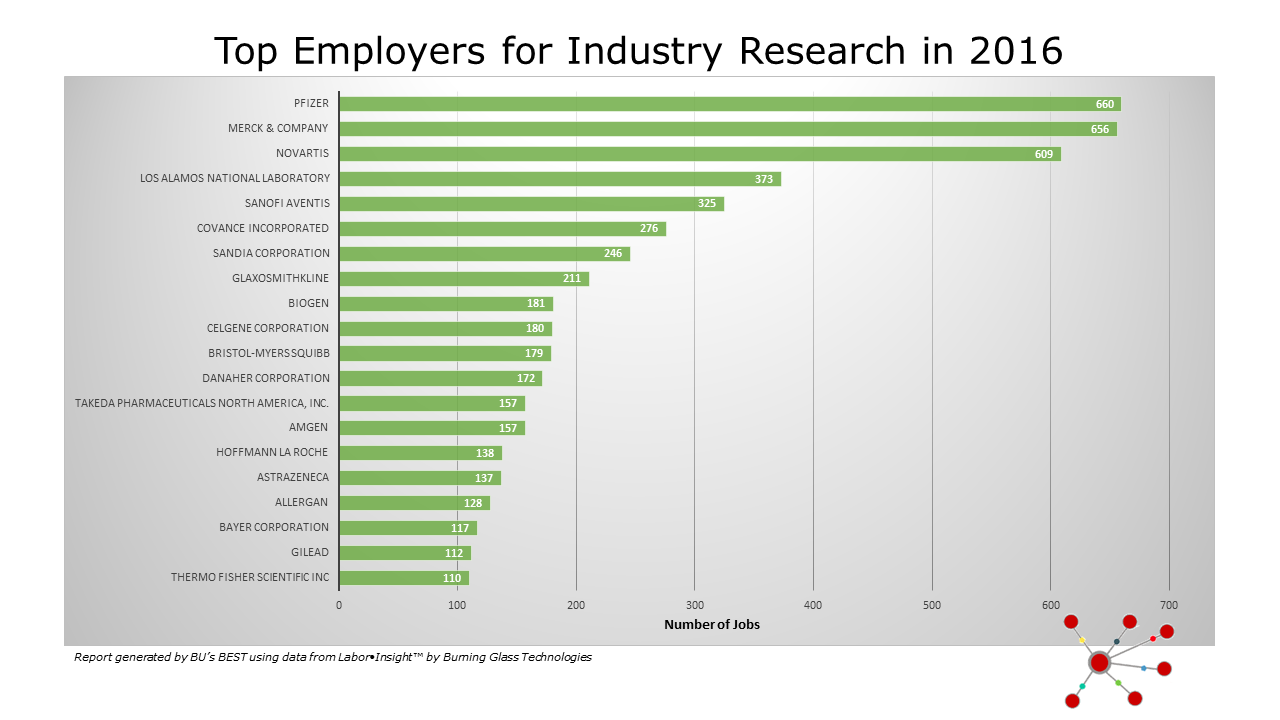How is a career in industry different from academia?
Increased Cross-Functional Teamwork
Bioengineers working in industry are involved in cross-functional teams with all departments needed to launch products. This requires much “leading without authority”. Thus, industrial bioengineers need to be able to work well within a team, as well as across multiple teams.Narrowed Focus
While professors and faculty members at academic institutions may pursue broad research questions, bioengineers in industry focus their attention on specific questions that directly relate to the outcome of a defined project. If a particular line of research or development does not appear to be commercially viable, an industrial bioengineer will abandon this line of inquiry, rather than exploring it furtherDefined Project Timelines
Project timelines are much more finite in the industrial setting. An academic scientist may work on a single line of research or project for a substantial portion of their career, whereas an industrial scientist will work on a project until it reaches the marketplace or the project is terminatedEnd Products
In academia, the end product of a research project is new knowledge, which is disseminated through published journal articles and conference presentations. In industry, the end product is more tangible, such as a new medicine or a medical device. Industrial bioengineers often publish their findings in peer-reviewed journals, but this is viewed as a byproduct, rather than end product of their work.Financial Models
Research, equipment, lab and other expenses in academia are funded through grants from outside funders. In industry, product development and launch is funded by the company, based on projected product sales and revenues and pathways for reimbursement. Marketing, finance, and product development teams work together to prepare these financial models.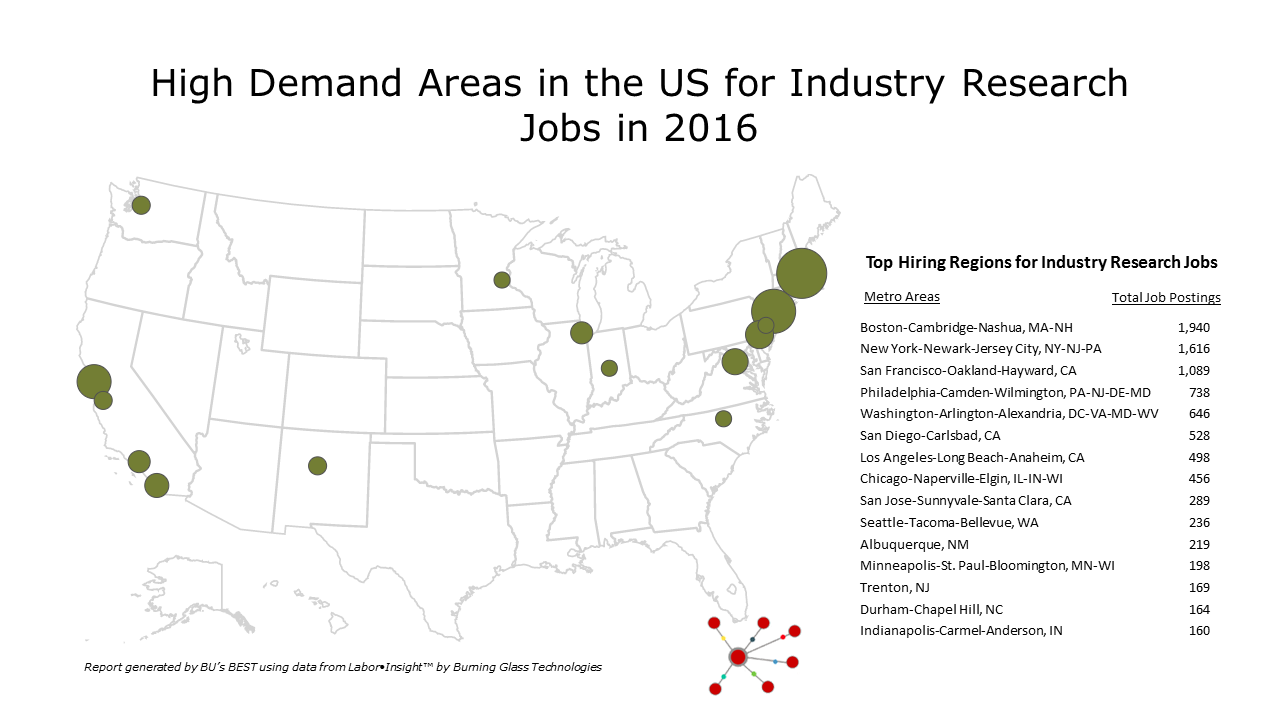
what are some career paths in industry?
- Technical Support/Field Agent
- Manufacturing Engineer
- Pharmaceutical Scientist
- Scientist/Senior Scientist
- Regulatory Affairs Specialist
- R&D Engineer
- Agricultural Engineer
- Environmental Engineer
- Sales Representative
- Marketing Representative
- Business Consultant
- Venture Capital Associate
- Business Develop. Associate
- Design Quality Engineer
- Procurement Engineer
- Chief Scientific Officer
Technical Support or Field Agents are responsible for maintaining medical and technical equipment in health care settings. This involves performing installations, troubleshooting, providing customer service including trainings, on-site guidance and physician assistance. They are responsible for customer inquiries regarding equipment, both clinical and technical. They can even help doctors utilize the specialized equipment during surgery or other medical procedures.
Manufacturing Engineers design and modify medical technologies from conception through production and manufacturing. They work in a team environment and often interface directly with product developers, product assemblers, production supervisors, project managers, and engineers. They can build manufacturing equipment and work with vendors to establish and maintain work processes. The type of manufacturing can vary from a small molecule or protein to a medical device battery or pacemaker, and many areas in between.
Pharmaceutical Scientists discover, develop, test and manufacture new drugs/medications. They work in a large team of scientists to identify new compounds that help treat diseases, test drugs to make sure they are safe and effective through clinical trials, and produce drugs in large quantities for distribution. They utilize advanced technologies to conduct scientific experiments.
Senior Scientists are responsible for providing high-level scientific research expertise to program initiatives, new and on-going development activities, and applied and fundamental scientific research within a company or organization. They oversee projects, conduct research, provide technical guidance, and direct scientific personnel. This position generally requires a doctoral-level degree.
Regulatory Affairs Specialists understand the dynamic role the regulatory field plays in the approval of medical technologies and pharmaceuticals. They navigate the jurisdiction of the U.S. Food and Drug Administration (FDA) and interface with government officials regarding processes and testing requirements needed for approval of clinical research and commercial distribution of products. They prepare documentation regarding product equivalence or superiority and submit it to regulatory officials. They can explore post-market issues and requirements such as inspections, reporting, and enforcement.
Research and Development (R&D) Engineers design and develop new technologies, products, materials, processes, or equipment in order to improve patient health. They gather and analyze data, prepare technical reports, coordinate test experiments, and adhere to clinical and regulatory processes. Identifying solutions to marketplace needs is the end goal of an R&D Engineer. Advanced degrees may be required, depending on the position and the company.
Agricultural Engineers design agricultural machinery, equipment, sensors, processes, and structures. Some specialize in areas such as power systems and machinery design; structures and environment engineering; and food and bioprocess engineering. They develop ways to conserve soil and water and to improve the processing of agricultural products. Source: Occupational Outlook Handbook
Environmental Engineers develop solutions to environmental problems and are involved in water and air pollution control, recycling, waste disposal, and public health issues. Some conduct hazardous-waste management studies and advise on treatment and containment. Others design municipal water supply and industrial wastewater treatment systems. They can also conduct research on the environmental impact of proposed construction projects, analyze scientific data, and perform quality-control checks. They also study and attempt to minimize the effects of acid rain, climate change, automobile emissions, and ozone depletion. Many help companies comply with regulations to prevent environmental damage. Source: Occupational Outlook Handbook
Sales Representatives represent companies involved in drug development, research diagnostics, medical devices, and healthcare products. They sell products and services to hospitals, pharmacies, surgery centers and clinics to help healthcare professionals diagnose and treat medical conditions or improve the quality of patients’ lives. They also keep customers up to date with the latest product research and encourage them to provide feedback on new product samples. Sales representatives travel frequently and enjoy working and communicating with people.
Marketing Representatives often interface with physicians and help product development teams understand the needs of physician clients in order to modify their technologies. They manage product lines, work with development teams, forecast product needs, and engage with customers to receive feedback on products. Marketing Representatives can have a background in engineering, business, or both.
Bioengineers may be employed by consulting firms as Business Associates to assist clients, such as medical device or pharmaceutical companies, in large projects. They may provide project assistance related to evaluating business practices and overhaul processes. The position may require the bioengineer to be on-site at companies for weeks or months, depending on the complexity of the project. Bioengineers with bachelors and advanced degrees are employed in this capacity.
Venture capital firms provide seed funding to high potential start-up companies that are involved in novel technologies and business models in areas such as biotechnology or biomedical product development. Venture capital firms earn money by owning equity in the companies they invest in. These firms may employ bioengineers to evaluate start-up company technology and engage in portfolio management.
Business Development Associates are involved evaluating external products and technologies for licensure or purchase. They assess the value of these products and technologies, as well as their own companies’ ability to develop, validate and launch the potential products. A minor in business or taking a few elective classes in the business school may help facilitate a bioengineer’s role in this position.
Design Quality Engineers (DQEs) work to ensure quality procedures are followed throughout the design, verification, validation, and launch phases of a product. They maintain the design history file quality, participate in manufacturing transfers and/or validations, and are responsible for directing product risk assessments. DQEs with a bioengineering background are well suited to facilitate collaboration between procurement, manufacturing, product development, and supplier quality.
Procurement Engineers are responsible for purchasing and obtaining raw materials or products through external suppliers for use in an industrial operation. They must have technical knowledge about the materials, supplies used in the industry, and the company that sells them. Procurement Engineers often evaluate new and existing suppliers and subcontractors and negotiates purchase agreements with them. A career in procurement engineering may require frequent travel.
Chief Scientific Officer is an executive-level position, requiring a doctoral degree and substantial experience, which involves managing the scientific, research or technological operations of a company or organization. These professionals help set a company’s research and scientific priorities so that they line up with the overall mission and goals of the organization. They oversee basic and applied research projects, as well as the development of new processes, technologies or products. They stay abreast of recent technological advances and industry trends and represent their company at public functions such as conferences.
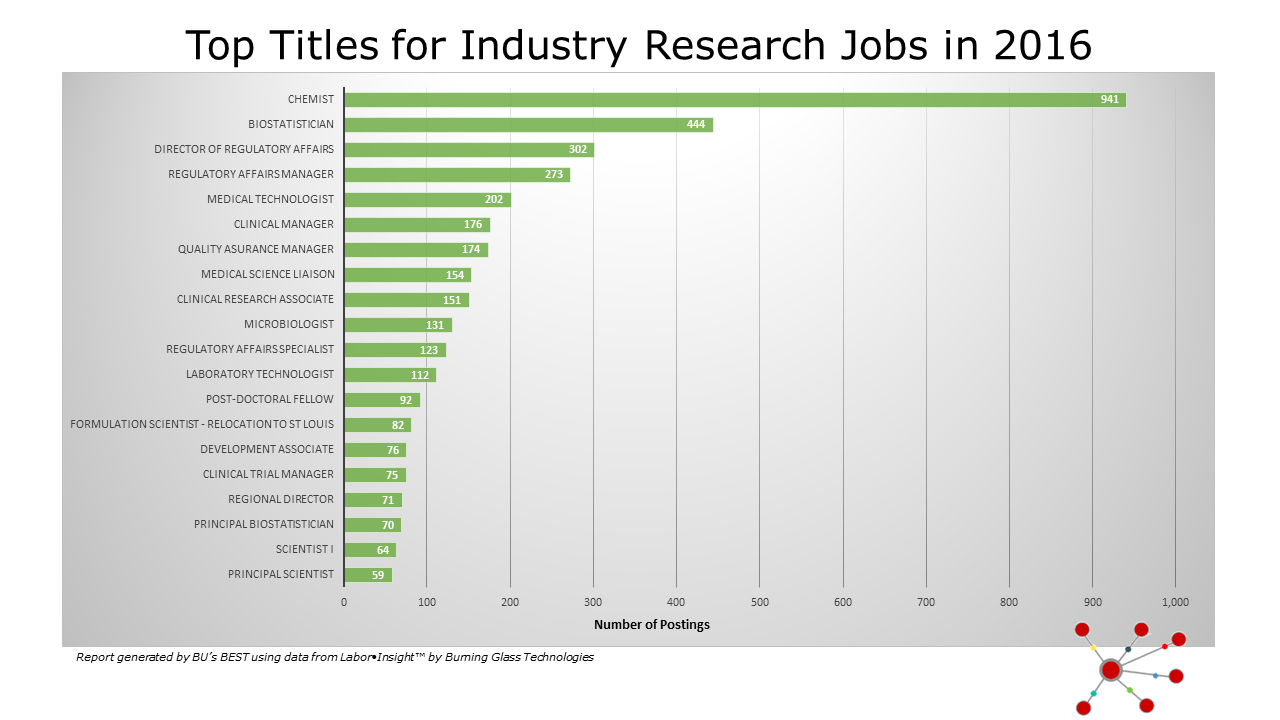
What are some myths about careers in industry?
You Cannot Publish or Present Your Work
There is an opportunity to present and publish research findings, just less than in academia, where the adage is to “publish or perish.” Publishing may be delayed until intellectual property considerations have been made.There is a Lack of Freedom and Creativity
Jobs in industry settings often prize creativity, but within the confines of a specific project or goal. There is a tremendous emphasis on finding innovative solutions to unmet needs.Industry Produces Biased Research
Although the pressures and incentives to produce results are high, industry studies are often well designed and well conducted. They potentially need to be able to stand up to scrutiny by regulatory officials.Industry and Academia are Worlds Apart
In truth, industry and academia have begun to collaborate much more in recent years due to trends in research funding and growing health care needs.Industry is Only Concerned with Making Money
Individuals looking for meaningful careers in industry can rest assured that their work product will not only increase company revenues, but make a real difference in peoples lives through new medicines and medical devices.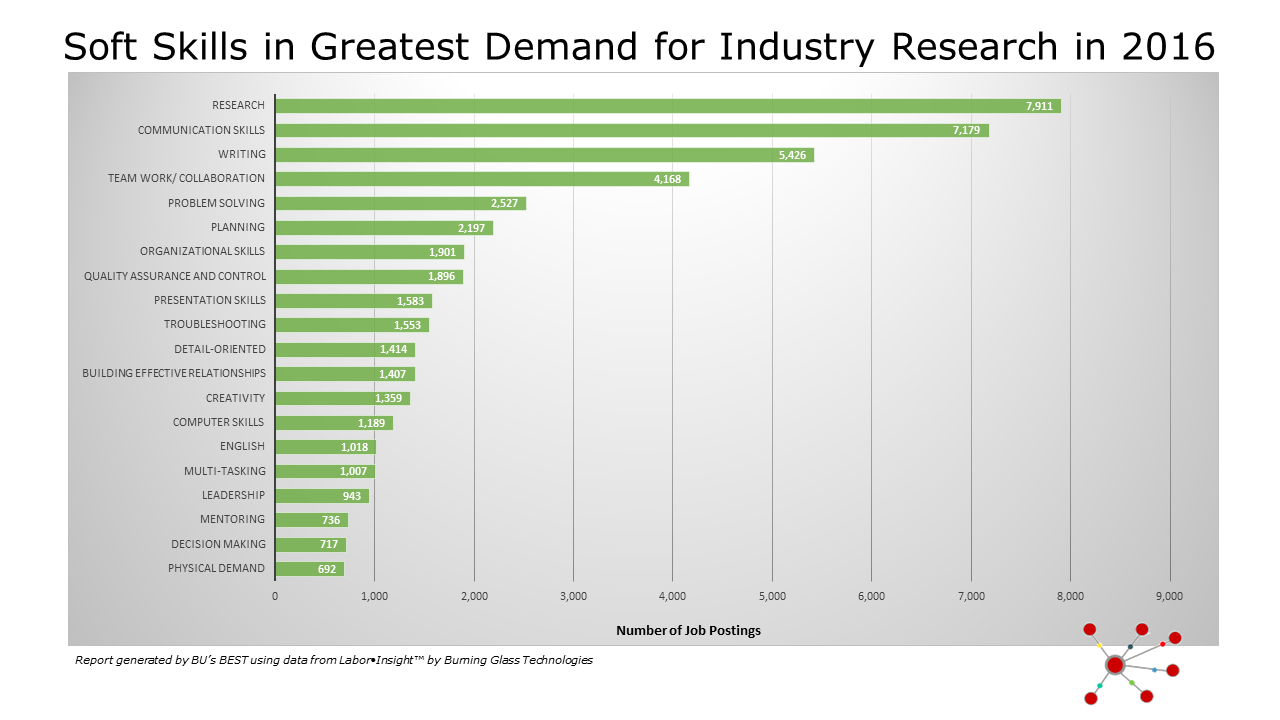
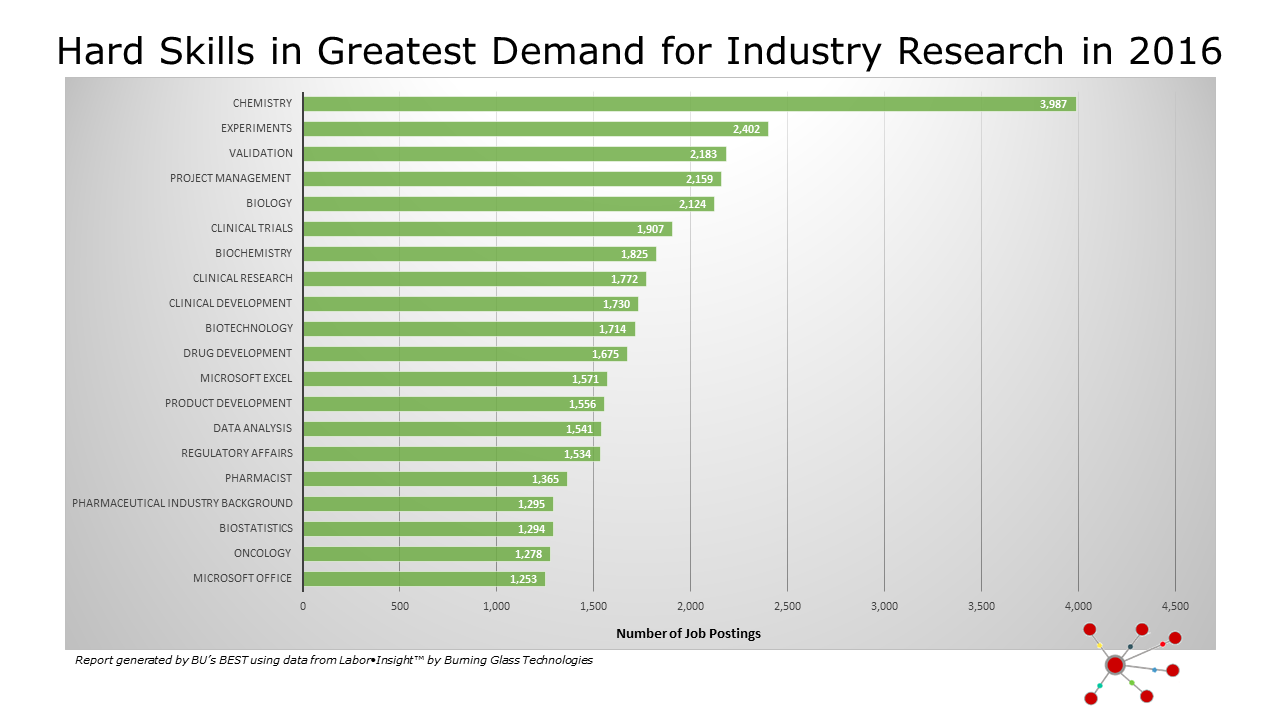
Questions and Answers
What qualities, skills, and/or background do companies look for when hiring?
Companies look for individuals with a technical background and mastery of their discipline, culminating in a bachelor’s or advanced degree. Beyond degree requirements, critical thinking, problem-solving, and analytical skills are essential in being able to draw clear and thoughtful conclusions. Being able to analyze and interpret quantitative data is highly sought after. Companies look for individuals who can network, collaborate, and serve as a team player. Strong communication skills, honesty, and a superior work ethic are critical to success. Lastly, companies are looking for individuals that can propel scientific developments into commercial products and have the mindset to do so.
Why consider a career in industry?
Bioengineers in industry have careers as diverse as you can imagine. They work in teams and collaborate with individuals across subfields in order to develop drugs, medical devices, software, and health care products. Their work directly impacts the marketplace and patient outcomes over the course of their career. Industrial biomedical engineers have the remarkable capability of bring an idea into fruition to improve the lives of millions of people.
How do I prepare for a career in industry?
Student internships, summer training programs, and co-ops with industry provide opportunities to get hands-on, real world experience that will help shape your career. They are an excellent way to bridge the gap between what you learn in school with what you will do on the job. Your college career services department and your biomedical engineering department can you help you start your search for the right opportunity. You can also explore the links to medical device and pharmaceutical and biotechnology companies below to search for opportunities.
What are some companies that hire biomedical engineers?
Although large and small companies alike employ biomedical engineers, commercial leaders in the medical device and pharmaceutical/ biotechnology industries hire the greatest concentration of workers in this arena. The list of companies, below, includes Fortune 500 companies (according to Fortune as of 2013) and commercial leaders (according to Ernst & Young as of 2012).
What is the average salary in industry?
Industry salaries for biomedical engineers can vary widely depending on the company focus and an individual’s experience level. The average annual salary can range from $94,000-$115,000, according to the Dept. of Labor’s Bureau of Labor Statistics, as of May 2013.
